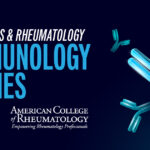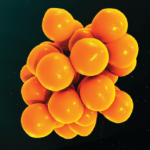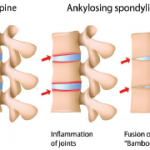A recent Proceedings of the National Academy of Sciences study found that high-intensity aerobic exercise may reduce the release of cell-free DNA & tamp down inflammation over time.


Bryn Nelson, PhD |
A recent Proceedings of the National Academy of Sciences study found that high-intensity aerobic exercise may reduce the release of cell-free DNA & tamp down inflammation over time.

A case-based review examines B cells in Sjögren’s disease, the use of endotyping for patient stratification & prognostication, & lymphoma risk.

Rheumatology Leadership Team: David Leverenz, MD; Akrithi Udupa, MD; Guy Katz, MD; Lauren He, MD; Ben Kellog, MD; Michael Macklin, MD; Courtney Bair; Matthew Sparks, MD; & Lisa Criscione-Schreiber, MD, MEd |
Research has identified and described a pro-inflammatory cytokine network shared by four rheumatic conditions that may be particularly active in patients with severe disease.

Catherine Kolonko |
At the Loma Linda University Medical Center, Calif., rheumatologists play a key consulting role for COVID-19 patients who may benefit from the use of biologic treatments…

Larry Beresford |
A recent prospective, observational cohort study of potential clinical biomarkers for progression to interstitial lung disease (ILD) in patients with early systemic sclerosis (SSc) found that higher levels of CCL2 circulating in their plasma predicted both faster ILD progression and poorer survival rates than in those with lower levels.1 CCL2, also known as monocyte chemoattractant…

What factors drive inflammation and progressive disease in ankylosing spondylitis (AS)? The answers have long eluded rheumatologists. Although 90% of patients with AS test positive for the HLA-B27 gene, pieces remain missing in our understanding of this chronic, inflammatory disease, which often leads to pain, spinal fusion and, in about half of patients, gut involvement,…
Lisa Rapaport |
(Reuters Health)—People with severe symptoms of chronic fatigue syndrome have a molecular signature in blood made up of 17 immune system signaling molecules that are elevated, which may provide insight into how inflammation contributes to the condition. “Of the 17 cytokines that correlated with severity, 13 are proinflammatory, likely contributing to many of the symptoms…

SAN FRANCISCO—To date, evidence on the efficacy of blocking the cytokine tumor necrosis factor (TNF) and its receptors in autoimmune diseases has resulted in the approval by the Food and Drug Administration (FDA) of five anti-TNF agents. Less well known, according to Richard Siegel, MD, PhD, chief, Immunoregulation Section, Autoimmunity Branch, and Clinical Director, NIAMS,…

ROME, Italy—Fatigue, a problem experienced frequently by patients with rheumatic diseases, is best thought of as a survival mechanism and as a single phenomenon, not a condition that comes in a variety of forms, an expert said in a session at EULAR 2015, the annual congress of the European League Against Rheumatism (EULAR). Gene Regulated…
Study identifies elevated cytokines in early and extended, symptomatic phases of disease